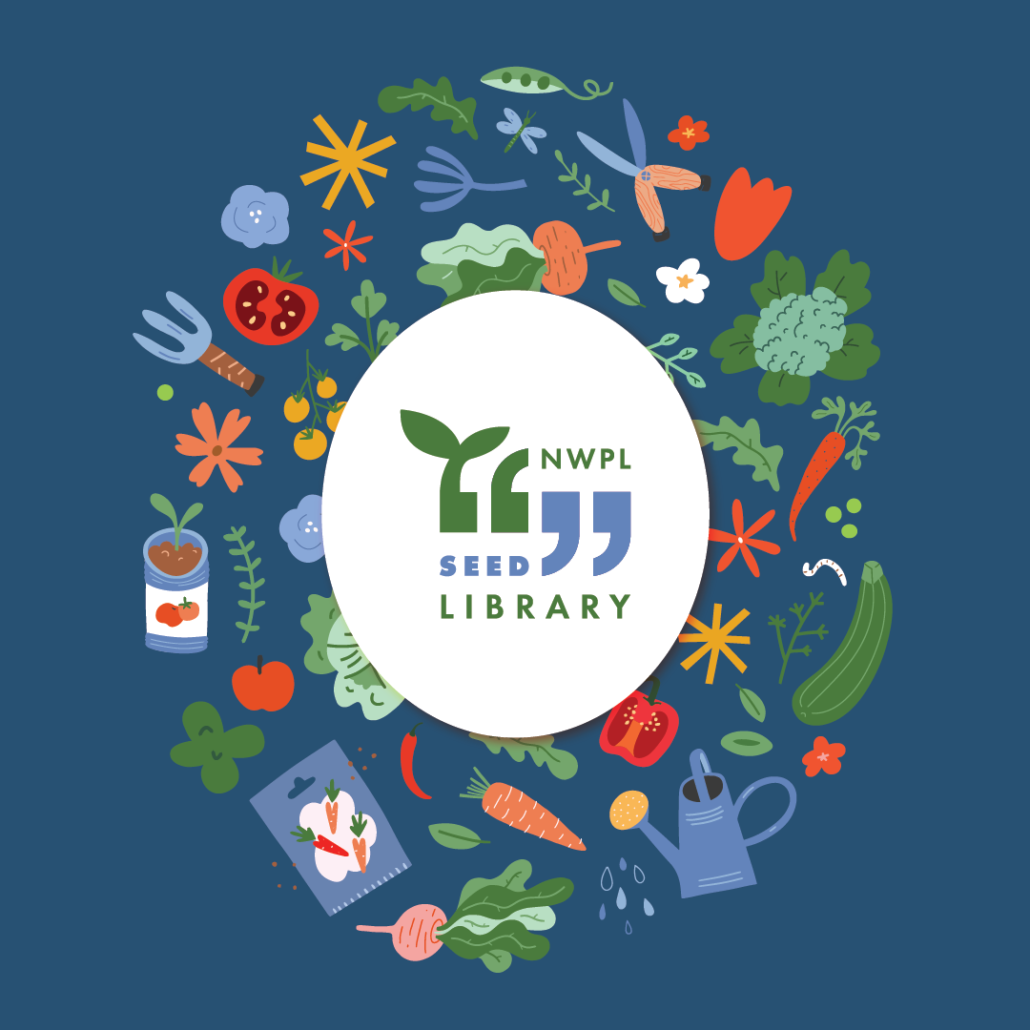Seed Library
What is a seed library?
The seed library at NWPL lends seeds for free. We hope you’ll plant them and enjoy the harvest, adding to community food security, green space, healthy food, beauty, and community knowledge! If you’re able to, return saved seeds from your harvests to the seed library at the end of the gardening season. We accept open-pollinated, non-hybrid seeds (what does this mean?) for vegetables, fruits, herbs and flowers. We’ll make them available to share with all of our neighbours!
Why have a seed library and save seeds?
- Save money by growing your own healthy food.
- Experiment with new varieties in your garden.
- Give everyone access to seeds.
- Learn about seeds and seed saving.
- Help your community develop seed stock that is well-suited to our unique growing conditions.
- Contribute to a community effort.
How it works
Three easy steps!
- Sign up as a member. If this is your first visit, use the online Seed Library Registration form or find a paper registration form (yellow) at the seed cabinet. Once you’re a member, we’ll keep you updated about when the seed cabinet is restocked, and when we’re planning events around gardening and seeds.
- Choose your seeds and check them out. Browse the available seeds in the cabinet and select what you’d like to grow. There’s no need to let us know what you’ve taken – we keep track of what we package and stock accordingly.
- Take the seeds home with you and plant them. Enjoy your plants and your harvest!
Special bonus steps:
- Save seeds. Once your plants are mature, consider saving seeds and returning some to the library. Check out our resources [scroll down] on how to save seeds – it’s easier than you think! For non-expert seed savers, the safest bets are beans, peas, tomatoes and lettuce.
- Return seeds. Bring your clean, dry, saved seeds to the front desk at either branch, along with information about them (type and variety, year of harvest, any growing instructions or experience you can share). If you can’t save seeds, consider donating a packet or two of commercially grown, non-hybrid seeds.
- Repeat! By borrowing, growing and returning seeds, you’re helping to propagate successful, local seeds and ensuring that our community has access to affordable, healthy, and delicious food.
You can also borrow gardening tools and planting information with your library card.
Interested in learning more?
Library Resources
We have lots of books and eBooks in our collection to help you learn how to garden and save seeds. Here are a few good ones:
Online Resources
- Seed Savers has all sorts of gardening and seed saving know-how in simple and straightforward guides
- Seeds of Diversity, a Canadian organization with a mandate to protect Canada’s seed biodiversity
- FarmFolk CityFolk has lots of great resources on where to find seeds, citizen seed trials, planting guides, and more.
The Seed Library is a collaboration between:



